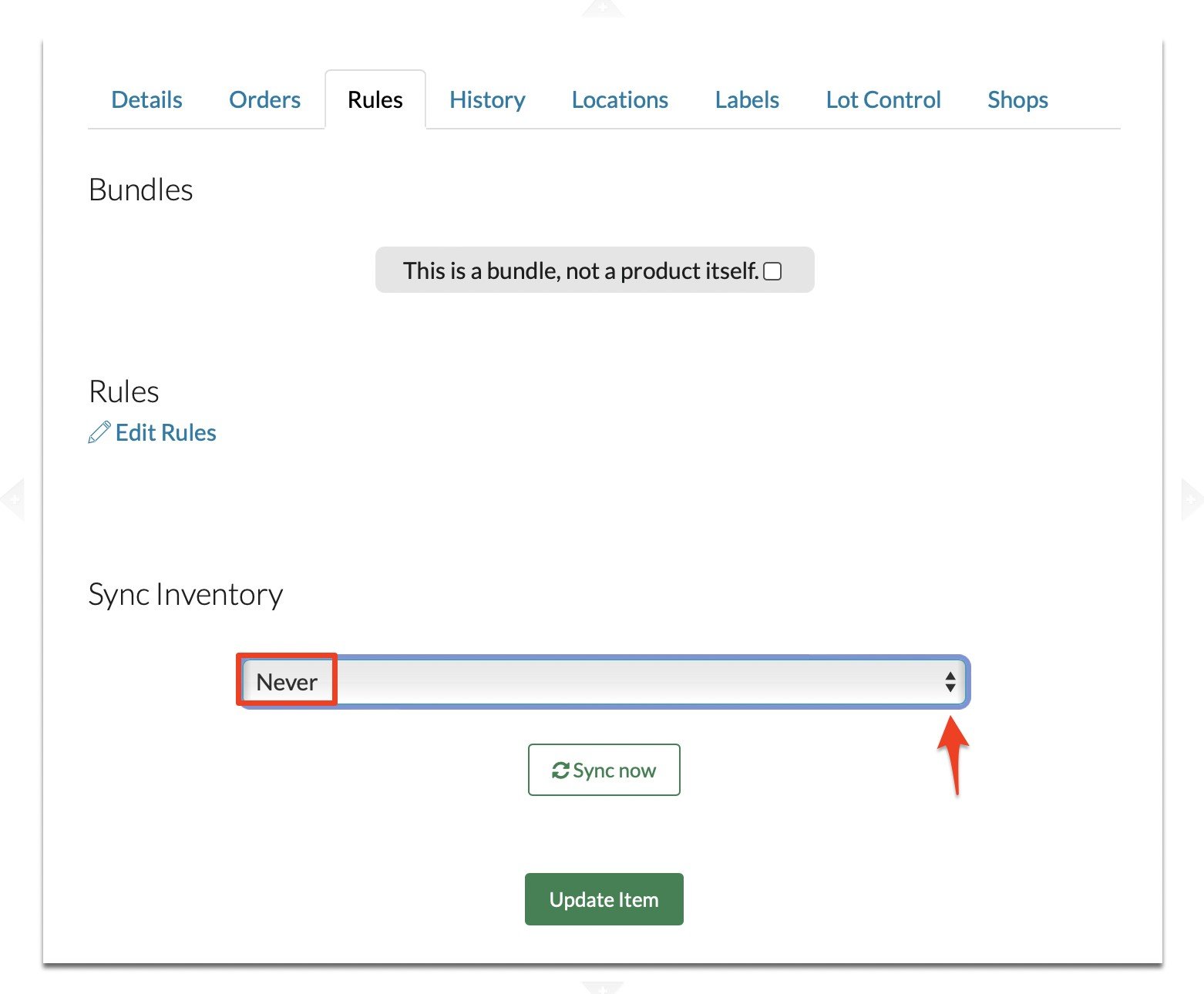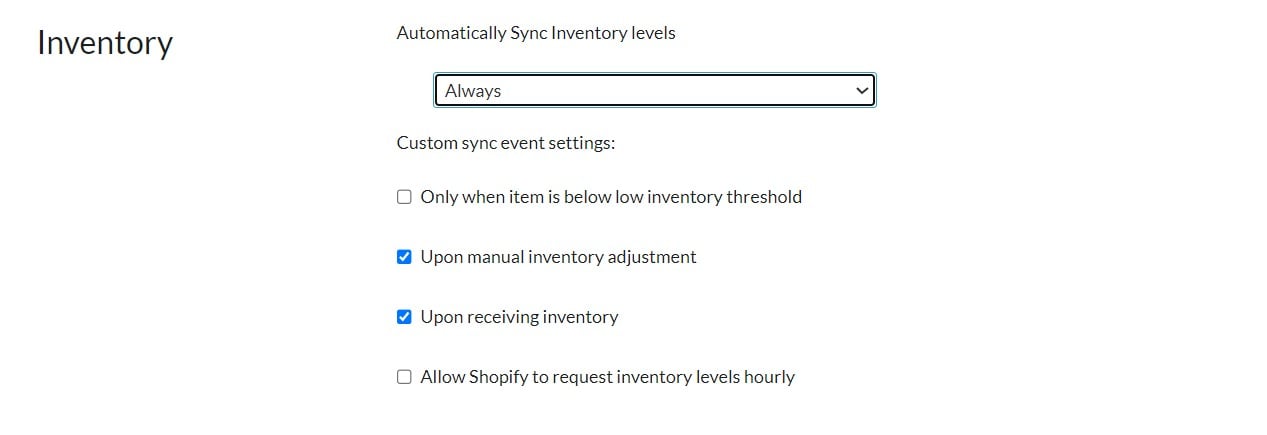Logistics
Warehousing & Fulfillment
Transportation
E-commerce
E-commerce Fulfillment Services
Lease & Maintenance
Semi Trucks
Supply Chain Technology
Logistics
E-commerce
Lease & Maintenance
Buy Used Trucks

Updated November 18, 2024
Imagine you've just placed an order with an online store and are feeling on top of the world. But a few hours later, you receive the dreaded email from the brand: Sorry! We oversold and cannot fulfill your order.
Overselling isn't just frustrating for your customer; it seriously affects inventory management and makes it difficult for brands to plan for the big sales events they rely on to boost revenue.
And if rectifying one case of overselling isn't bad enough, imagine having to do this en masse for hundreds of orders placed during Black Friday or Cyber Monday. In short, stockouts might be inconvenient, but overselling isn't something your business wants to become known for.
Fortunately, it is possible to prevent overselling while still running profitable sales events. In this blog, we're going to cover what overselling is, the common causes of overselling, and how Ryder’s e-commerce fulfillment technology platform helps brands prevent overselling from ruining their next big promotion.
What is overselling?
Overselling occurs when a retail store or online store sells more units of inventory than its actual stock levels allow for. This means they are unable to fulfill outstanding customer orders until more items arrive, and may be forced to refund customers the value of the sale.
There are a variety of reasons why overselling takes place. This includes the inability to maintain accurate inventory tracking, system glitches, or setting incorrect reorder points for popular items - all of which are more likely to happen during sales events.
What is the difference between overselling and pre-ordering?
While both overselling and pre-orders involve selling inventory that isn't currently in stock, the mechanism involved is different. While overselling occurs due to a discrepancy between recorded and actual stock, pre-ordering is an intentional strategy to keep orders flowing while a business is awaiting a fresh shipment of inventory. It's best practice for brands to avoid pre-orders unless they have a guaranteed delivery date on replenishment, ensuring that they don't disappoint customers with late delivery or being forced to cancel orders at a later date.
Why brands should avoid overselling
Overselling often has good intentions behind it. When demand for certain products (or seasonal shopping activities) is high, it can be tempting for retailers to oversell in a bid to placate customers and then delay fulfillment until more inventory arrives. However, there are some very good reasons why this practice is best avoided:
Revenue loss
Having to refund customers who fall victim to overselling can seriously affect cash flow. This is especially pronounced during sales events when a big spike in purchase activity across sales channels is undercut by a big chunk of losses. This muddies historical sales data and makes it difficult to understand the demand for different products, increasing the likelihood of future overselling events.
Unhappy customers
Overselling severely affects customer satisfaction. After experiencing the high of securing a wanted product - especially at a discount price - notifying a customer about a stockout brings them back to earth with a serious bump. Now back at square one and having to begin the shopping process all over again, customer loyalty is likely to take a serious hit. In addition to feeling frustrated, customers may feel as though your brand has taken their money under false pretenses, which will make them less willing to take store credit or order an alternative product.
Reputational damage
While the occasional oversell here and there might not change the competitive landscape too much, overselling on a massive scale can have serious ramifications for your brand's position in the market. Developing a reputation as a business that never delivers on what it promises means a massive loss of credibility.
This kind of reputational damage is very difficult to recover from, especially in the era of online reviews. When they have a negative brand experience, many consumers will feel duty-bound to let others know to help them avoid the same outcome. According to Zendesk, 95% of people were likely to share bad experiences with brands, compared to 87% who shared good experiences.
Handing your competitors more sales
If your brand keeps falling foul of inaccurate inventory counts, this gives your competitors a serious advantage. Customers who are oversold items will almost immediately start looking for alternative options, an easy task when vendors are just a Google search away. Once that customer has defected to another brand, it's very difficult to entice them back - especially after an operational mistake like overselling. This is especially damaging to small businesses, many of which already face man uphill battle in attracting customers away from reliable mainstays like Target and Walmart.
Why is overselling so common during sales?
Overselling can happen any time that a customer makes a purchase, but it's most likely to occur during busy sales events like Black Friday and Cyber Monday, when sales volumes spike and inventory management tools are more likely to get overwhelmed. But sales events also have other unique conditions that increase the likelihood of merchandise being oversold:
High customer demand
When promotions go live, your customer base will jump at the chance to secure products at a discounted price, especially during flash sales or limited-time specials. This additional sales activity leads to a high volume of orders being placed within a very condensed period, increasing the odds of overselling.
A lack of real-time inventory management software
Manual methods of managing inventory might be sufficient during lull periods but often struggle when hundreds of orders are being placed per day or even per hour. Sales events put inventory systems under serious strain, as it's necessary to sync stock data continuously to keep pace with higher sales activity. If inventory counts aren't being updated in real-time, a product might be marked on an online store as available - even though it was sold out of offline inventory several hours ago. Errors like this can easily result in hundreds of orders needing to be refunded or amended, which causes serious headaches for your operations team.
Operating multiple sales channels
If brands are running sales across multiple channels, it's harder to keep track of how many orders of a particular product are being placed overall, which increases the likelihood of overselling. If you don't unify inventory management on the backend, inventory in one channel cannot be easily transferred to fulfill orders outstanding in another. This leads to a technical oversell, where orders cannot be fulfilled even though inventory is available elsewhere. This outcome is the worst of both worlds, as orders may have to be refunded while excess inventory piles up and accumulates additional storage costs.
Scarcity marketing tactics
Bombarding consumers with messages like 'Get it before it's gone!' or 'While stock levels last!' is very successful at driving buyer urgency and creating the perception that a product is particularly sought after. However, this can backfire if you don't have a good grasp on how much inventory is available. This is more likely to happen during end-of-season clearance events when physical inventory is available in limited quantities.
5 Ways to prevent overselling during sales
1. Turning off inventory syncing
While syncing between your online store and inventory system is a powerful tool during regular selling, it can become a liability during sales events. Even robust inventory management software that's capable of real-time updates can struggle to keep pace with hundreds of orders being placed at once, especially when payments must be accepted from customers before new orders can be sent through to the warehouse.
Instead, it's a good idea to disable syncing during sales events so that personnel can control exactly how much inventory is available. By setting a starting quantity for what inventory is available before a sale begins, it's far easier for backend operations to prevent overselling.
RyderShip™, Ryder's e-commerce technology platform, makes it easy to disable syncing for either your entire inventory or for specific items that are going on promotion, preventing overselling at the click of a button.

For individual items, simply go into the edit screen for the item and select the "Rules" tab. In the "Sync Inventory" dropdown, change the setting to "Never" to prevent any syncing from taking place during the sale.

For storewide sales, you can disable inventory syncing under the "Preferences" and "General" tab.
2. Set appropriate reorder points
Setting the right points to automatically reorder merchandise that's going on sale is crucial to both maximize sales opportunities and prevent overselling. For major sales such as Black Friday and Cyber Monday, it's a good idea to set more conservative reorder points to ensure that fresh shipments arrive well in advance of promotions going live. When inventory levels are bolstered, overselling is less likely to occur.
3. Audit inventory regularly
Regular audits allow brands to reconcile physical inventory in their warehouses with online counts for accurate inventory levels. By knowing how much inventory is on hand, personnel can trust inventory counts and rectify any discrepancies due to shrinkage and theft before an oversell takes place. Audits should take place at least a couple of times a year, in addition to happening ahead of sales events.
4. Improve demand forecasting methods
Thorough demand forecasting helps brands understand which products are proving popular according to historical sales data, market trends, cultural events, and seasonal changes. This helps to avoid brands and their supply chain being surprised by unexpected demand for certain products, and so missing out on sales opportunities and being tempted to oversell.
5. Consider offering pre-orders
Pre-orders on popular products are a great way to manage limited inventory while ensuring that customers don't get surprised by stockouts. However, it's very important to communicate estimated delivery times and ensure that customers are fully aware they are pre-ordering. Ensure you keep a register of all outstanding pre-orders that need to be fulfilled as soon as inventory arrives to avoid unnecessary delays.2. Set appropriate reorder points Setting the right points to automatically reorder merchandise that's going on sale is crucial to both maximize sales opportunities and prevent overselling. For major sales such as Black Friday and Cyber Monday, it's a good idea to set more conservative reorder points to ensure that fresh shipments arrive well in advance of promotions going live. When inventory levels are bolstered, overselling is less likely to occur. 3. Audit inventory regularly Regular audits allow brands to reconcile physical inventory in their warehouses with online counts for accurate inventory levels. By knowing how much inventory is on hand, personnel can trust inventory counts and rectify any discrepancies due to shrinkage and theft before an oversell takes place. Audits should take place at least a couple of times a year, in addition to happening ahead of sales events. 4. Improve demand forecasting methods Thorough demand forecasting helps brands understand which products are proving popular according to historical sales data, market trends, cultural events, and seasonal changes. This helps to avoid brands and their supply chain being surprised by unexpected demand for certain products, and so missing out on sales opportunities and being tempted to oversell. 5. Consider offering pre-orders Pre-orders on popular products are a great way to manage limited inventory while ensuring that customers don't get surprised by stockouts. However, it's very important to communicate estimated delivery times and ensure that customers are fully aware they are pre-ordering. Ensure you keep a register of all outstanding pre-orders that need to be fulfilled as soon as inventory arrives to avoid unnecessary delays.
If left unchecked, overselling can seriously undermine the success of your next big sales event. Moreover, it carries a serious risk of damaging your brand's reputation and directing shoppers towards your competitors. Fortunately, there are several steps your business can take to avoid overselling from taking the shine off their next promotion. In addition to investing in good inventory management software, look for a system like Ryder which allows you to control inventory syncing to coordinate both item promotions and storewide sales without the worry of overselling. With the right tools and systems in place, your retail store can confidently invest in sales events without worrying about inventory.